7 Things Sleep Doctors Really Want You To Stop Doing At Night
If your sleep is suffering, here are seven ways you could be messing with it.
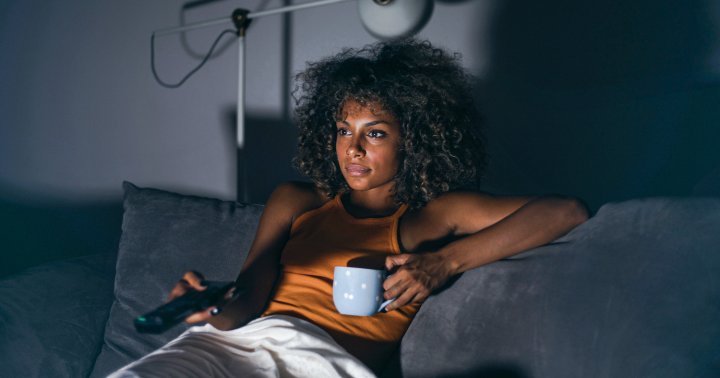
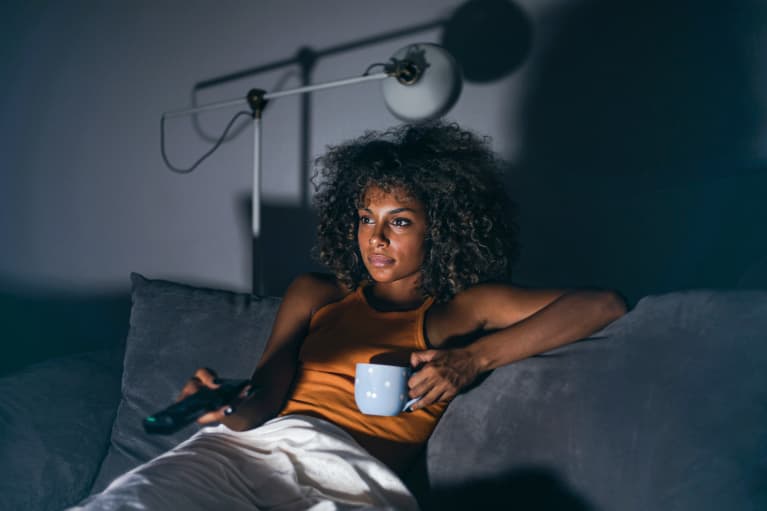
Our editors have independently chosen the products listed on this page. If you purchase something mentioned in this article, we may earn a small commission.
Every single one of us needs quality sleep (and enough of it) on a consistent basis. There are plenty of things you can do daily for better sleep at night—but what about the things you shouldn't do? If your sleep is suffering, we rounded up seven of the major ways your nightly routine could be messing with it, from experts:
1. Staring at your screen.
This one may come as no surprise, but it's still worth mentioning; Scrolling through social media, streaming movies on your laptop, and even watching TV before bed can all affect your circadian rhythm and melatonin production, due to the spectrum of blue light that screens give off.
As Harvard- and Yale-trained ER doctor and founder of The TrueveLab, Darria Long, M.D., previously suggested to mbg, "If you have trouble falling asleep, I tell people to turn off your devices for 60 to 90 minutes before bedtime." Consider reading a physical book or listening to a bedtime story instead.
And if that's not an option, at the very least, you can invest in some blue-light-blocking glasses or set up blue-light-reducing settings on your devices. Screens that are farther away, like TVs, tend to be less disruptive to the circadian rhythm than ones right in front of your face, like phones.
Speaking of circadian rhythms, they really love routines, so it's best to eat dinner at around the same time every night. Opt for earlier meals than later. Not only has late-night eating been shown to affect metabolic health, but research finds that it can also affect how long you're actually able to stay asleep.
By eating dinner at the same time every day, with at least a few hours to digest before bed, your internal clock will thrive. If you do have to reach for a late-night snack, opt for something light that has a healthy dose of sleep-supporting magnesium in it, like the bedtime-friendly foods on this list.*
Sure, drinking a glass of wine before bed may help you doze off faster, but according to nervous system specialist and holistic nurse practitioner Victoria Albina, N.P., MPH, it negatively affects overall sleep quality. "Alcohol can make you feel like you're sleeping deeper, but it can cause problems with sleep architecture, namely affecting the second half of sleep, meaning you spend less time in REM," Albina previously told mbg. Since alcohol has diuretic properties, it can also send you to the bathroom in the middle of the night.
To give your body enough time to process booze, you should aim to stop drinking four to six hours before bed.
Did you know there's an optimal temperature to keep your bedroom for high-quality sleep? Our body temperature naturally dips a teeny bit when we're preparing for sleep, so a hot bedroom is not ideal. As one study on sleep and body temperature notes, "Heat exposure increases wakefulness and decreases slow wave sleep and rapid eye movement sleep."
According to holistic psychiatrist and sleep expert Ellen Vora, M.D., the magic number is roughly 65 degrees Fahrenheit. Depending on the time of year, adjust the thermostat or open up your windows to set the stage for a chilly snooze.
5. Procrastinating bedtime.
We all have those days when we put off going to bed in the name of one more episode, some late-night chores, or some phone scrolling. But this urge, sometimes called "revenge bedtime procrastination," can lead to major fatigue over time, psychiatrist and sleep expert, Nishi Bhopal, M.D., previously explained to mbg.
As one 2014 study by Utrecht University in the Netherlands found, bedtime procrastination is related to "general reports of insufficient sleep above and beyond demographics and self-regulation." Long story short? Just go to bed on time—you'll be glad you did in the morning.
6. Squeezing in a late-night workout.
Staying active and exercising regularly is so important, but when it comes to sleep, working out too close to bedtime can have some unintended consequences.
As behavioral sleep doctor Shelby Harris, PsyD, DBSM, author of The Women's Guide to Overcoming Insomnia, recently explained on the mbg podcast, "If you want to help your ability to fall asleep and stay asleep, [working out] four to six hours before bed is great. If you exercise within three hours of bed, you're actually warming yourself up and making yourself too warm to fall asleep."
7. Lying down before you're actually ready for sleep.
And last but not least, according to Harris, it's important to only get in bed when you're actually ready to fall asleep. "If you can't fall asleep, I'd rather you go to bed when you're really sleepy so that you feel more confident in your ability to fall asleep," she explains.
When you lie there scrolling, tossing and turning, or ruminating about the day, not only are you not getting closer to falling asleep, but you're reinforcing to your mind and body that the bed isn't only for sleeping. This can result in actually feeling wired when you get in bed—which is, obviously, the opposite of what you want.
No amount of sleep hacks can make up for poor sleep hygiene habits. If you can't pin down what exactly has been messing with your sleep, but you do any of these things, it might be worth making some tweaks so you can rest easier—and wake up refreshed.
https://www.mindbodygreen.com/articles/struggling-with-sleep-avoid-these-7-habits-sleep-docs-say

 FrankLin
FrankLin 








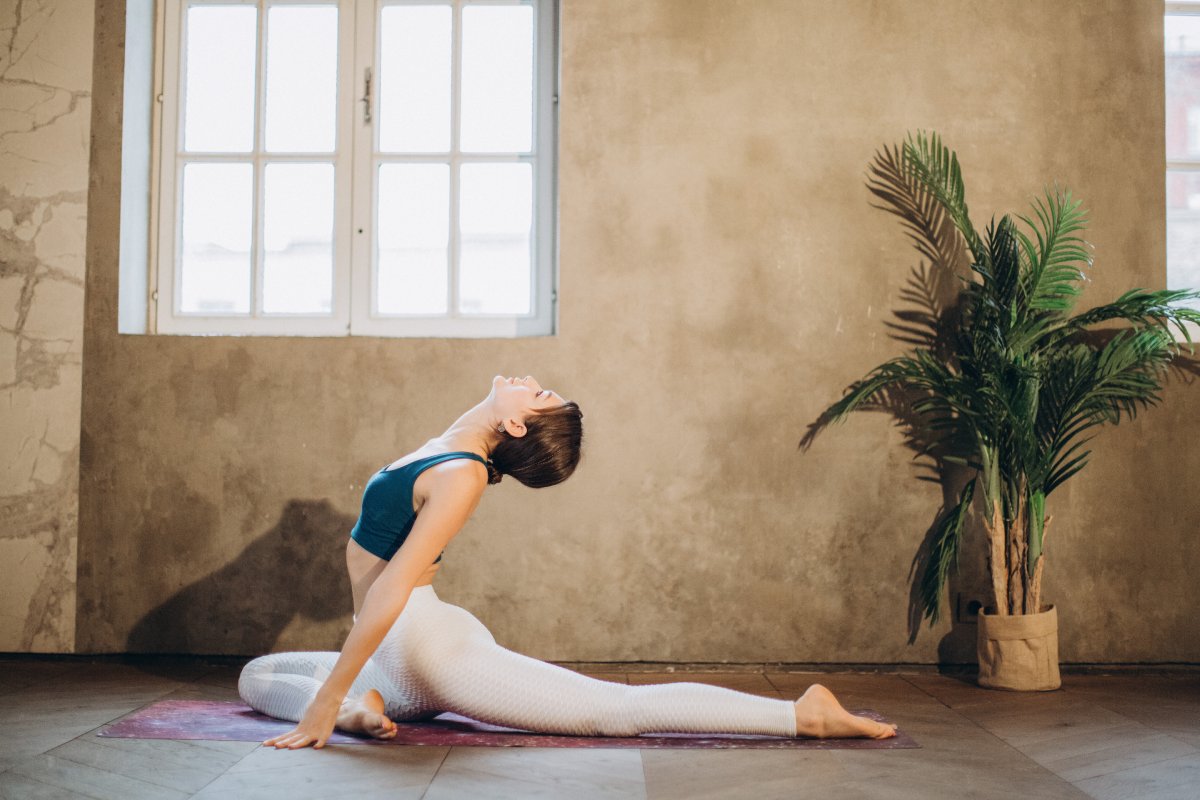

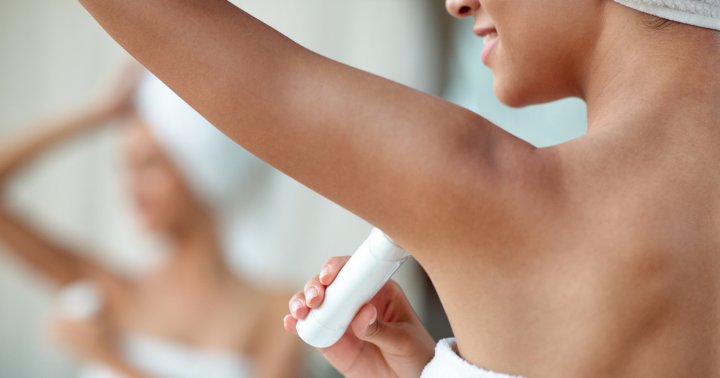
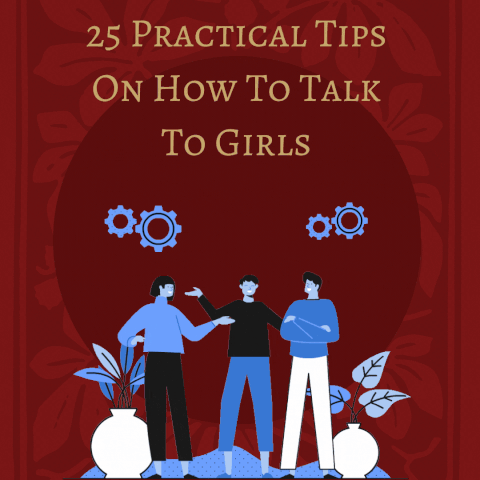







.jpg&h=630&w=1200&q=100&v=6e07dc5773&c=1)












